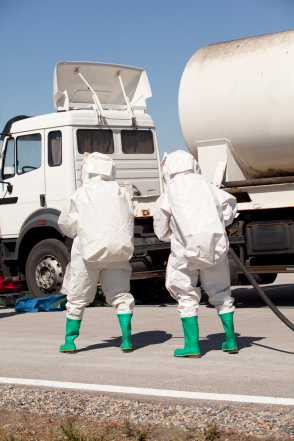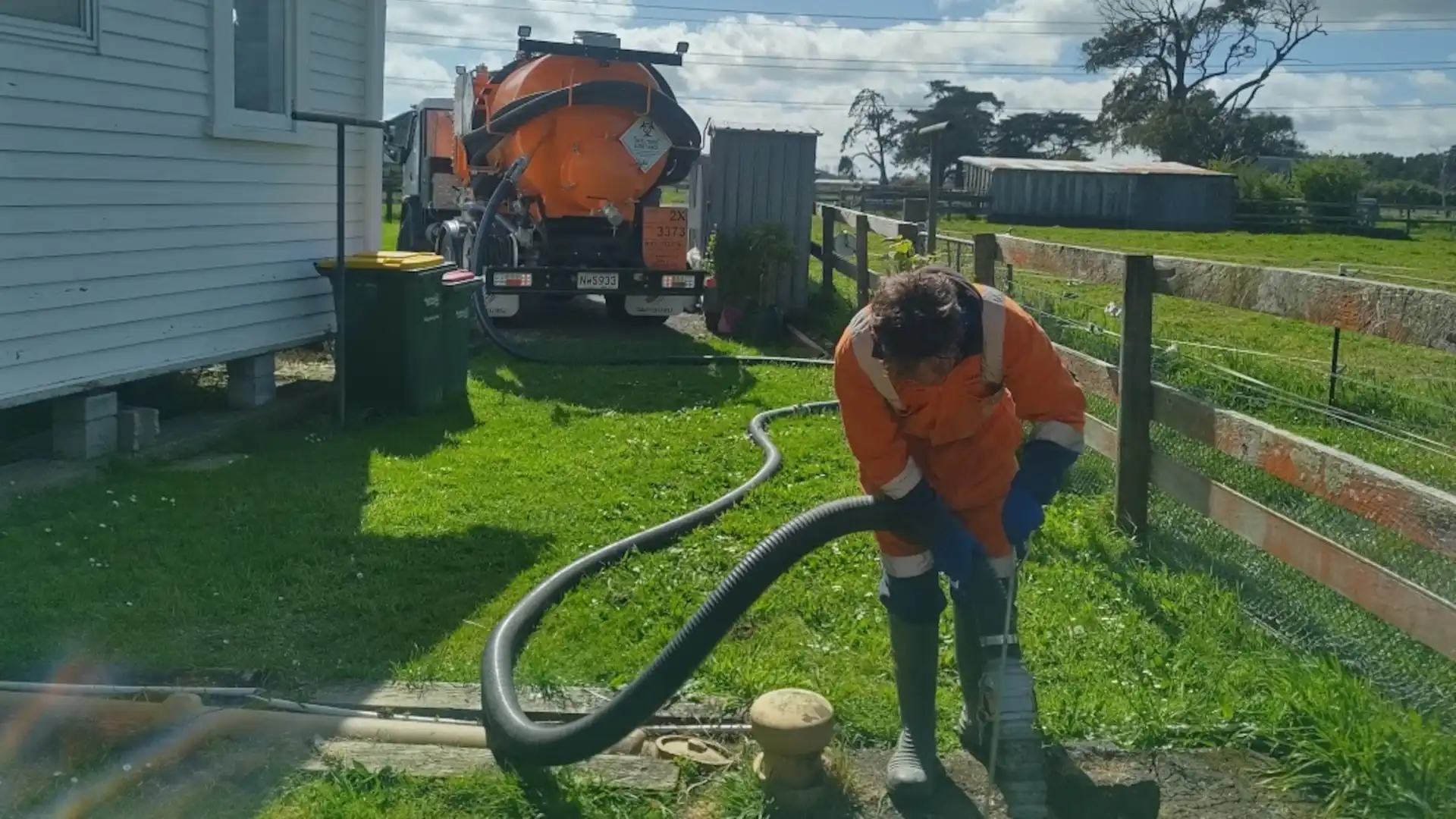Industrial Wastewater Treatment: Personalized Solutions for Facility Wastewater Obstacles
Industrial Wastewater Treatment: Personalized Solutions for Facility Wastewater Obstacles
Blog Article
Recognizing the Comprehensive Process of Fluid Garbage Disposal: Best Practices and Environmental Impact Factors To Consider
The monitoring of fluid waste disposal is a complex concern that calls for an extensive understanding of different best techniques and their associated ecological effects. From the types of fluid waste generated to the techniques utilized for collection, therapy, and final disposal, each action plays an important role in guarding communities and public health and wellness.
Kinds Of Liquid Waste
Comprehending the numerous kinds of fluid waste is essential for efficient administration and disposal techniques. Fluid waste can be extensively categorized right into numerous kinds, each needing special handling and therapy methods.
Industrial fluid waste usually has harmful products, including heavy steels, solvents, and chemicals, produced during manufacturing processes. These wastes demand strict regulative conformity to protect human wellness and the setting. Domestic liquid waste primarily refers to wastewater produced from households, including sewage and greywater, which, although much less toxic, can still posture considerable threats if incorrectly handled.
Agricultural liquid waste, including runoff from ranches, commonly has fertilizers and pesticides that can bring about environmental degradation otherwise treated properly. Medical liquid waste, created from medical care centers, consists of polluted liquids such as bodily liquids and chemicals, needing specialized disposal techniques to stop infection and ecological contamination.
Last but not least, oil and oil waste, normally generated by restaurants and automobile industries, can trigger serious clogs in sewage system systems otherwise managed appropriately. Understanding these classifications promotes targeted methods for treatment, conformity with policies, and efficient disposal methods, ultimately advertising ecological sustainability and public health and wellness safety and security.

Collection Methods
Reliable collection approaches are important for the correct monitoring of liquid waste, making certain that it is collected safely and efficiently prior to therapy or disposal. Different techniques are utilized depending upon the kind of liquid waste produced, the volume, and the particular qualities of the waste.
One common approach is the use of dedicated collection tanks or sumps, which are made to record liquid waste at the resource. These systems often include pumps that promote the transfer of waste to bigger storage space containers or therapy centers. Additionally, mobile collection devices furnished with vacuum cleaner modern technology are employed in scenarios where waste is produced periodically or in hard-to-reach locations.
For commercial setups, closed-loop systems can effectively reduce spills and leaks, allowing for the healing and reuse of liquid waste. It is also vital to train employees on appropriate collection methods to minimize risks connected with unsafe substances.
Furthermore, implementing routine maintenance schedules for collection equipment ensures ideal performance and safety. The combination of innovative monitoring systems can enhance collection performance by supplying real-time data on waste degrees and prospective risks. On the whole, reliable collection methods are foundational to sustainable fluid waste management practices.
Treatment Processes
Therapy processes play an essential function in the administration of fluid waste, changing possibly unsafe products into reusable resources or safe effluents - liquid waste disposal. These processes can be extensively classified into physical, chemical, and biological techniques, each customized to attend to details contaminants existing in the waste stream
Physical treatment techniques, such as sedimentation and filtration, job by getting rid of suspended solids and particle issue. These methods are frequently the initial step in the treatment chain, effectively reducing the load on subsequent processes. Chemical therapies include making use of reagents to neutralize damaging compounds, speed up hefty metals, or oxidize natural pollutants, therefore enhancing the security of the effluent.
Organic visit our website therapy procedures, consisting of turned on sludge systems and anaerobic digestion, profit from the natural abilities Clicking Here of microorganisms to degrade natural issue. These methods are particularly effective for wastewater having biodegradable toxins. Advanced treatment modern technologies, such as membrane layer filtration and progressed oxidation processes, are progressively employed to achieve higher levels of filtration.
Integrating a mix of these treatment methods not only guarantees compliance with regulative standards however additionally promotes ecological sustainability by recuperating valuable resources from liquid waste.
Disposal Options
Just how can organizations make sure the accountable and safe disposal of fluid waste? Reliable disposal options are crucial for guarding public health and the environment. The primary methods consist of land disposal, treatment, and incineration complied with by discharge into municipal wastewater systems.
Land disposal involves the careful containment of liquid waste in assigned landfills, making sure that it does not leach right into surrounding soil or water. Incineration, on the various other hand, subjects liquid waste to heats, converting it into ash and gases, which require correct filtration to reduce emissions. This technique is ideal for contaminateds materials that can not be treated via standard methods.
In situations where fluid waste can be treated, companies might choose biological or chemical therapy processes to reduce the effects of harmful parts prior to discharging the treated effluent right into municipal systems. This path commonly lines up with regulative demands, guaranteeing that the effluent meets security standards.
Eventually, organizations need to perform thorough evaluations of each disposal alternative to identify its stability, thinking about variables such as waste structure, regulative compliance, and potential dangers to health and the setting. By choosing suitable disposal methods, services can contribute to a responsible waste monitoring approach.
Ecological Impact
The environmental effect of liquid garbage disposal is an important factor to consider for organizations looking for to lessen their eco-friendly footprint. Improper disposal approaches can result in substantial contamination of water sources, dirt deterioration, and unfavorable impacts on local communities. For instance, harmful fluids can leach right into groundwater, posturing risks to drinking water read what he said supplies and marine life. Furthermore, the discharge of neglected or improperly treated waste right into surface area waters can result in eutrophication, leading to oxygen depletion and the succeeding fatality of fish and other microorganisms.

To alleviate these effects, organizations should take on finest methods such as implementing extensive waste treatment processes, promoting recycling and reuse, and adhering to regulatory requirements. By taking a proactive technique to liquid waste monitoring, entities can substantially reduce their ecological impact while sustaining sustainable development goals. Inevitably, a detailed understanding of the environmental impacts connected with liquid garbage disposal is necessary for educated decision-making and responsible stewardship of natural resources.
Final Thought
Effective management of fluid waste is critical for guarding environmental stability and public health and wellness. Ultimately, a thorough understanding of fluid waste disposal not only alleviates environmental effects yet also fosters a commitment to liable source management and environmental stewardship.
The administration of fluid waste disposal is a complex concern that requires a complete understanding of numerous ideal practices and their associated environmental impacts. From the types of liquid waste produced to the techniques utilized for collection, treatment, and final disposal, each action plays a critical role in protecting environments and public wellness.The ecological impact of liquid waste disposal is a crucial consideration for organizations seeking to lessen their eco-friendly impact. Ultimately, a comprehensive understanding of the environmental effects connected with fluid waste disposal is crucial for informed decision-making and accountable stewardship of all-natural resources.
Eventually, an extensive understanding of liquid waste disposal not only mitigates ecological influences yet likewise promotes a dedication to liable source management and ecological stewardship.
Report this page